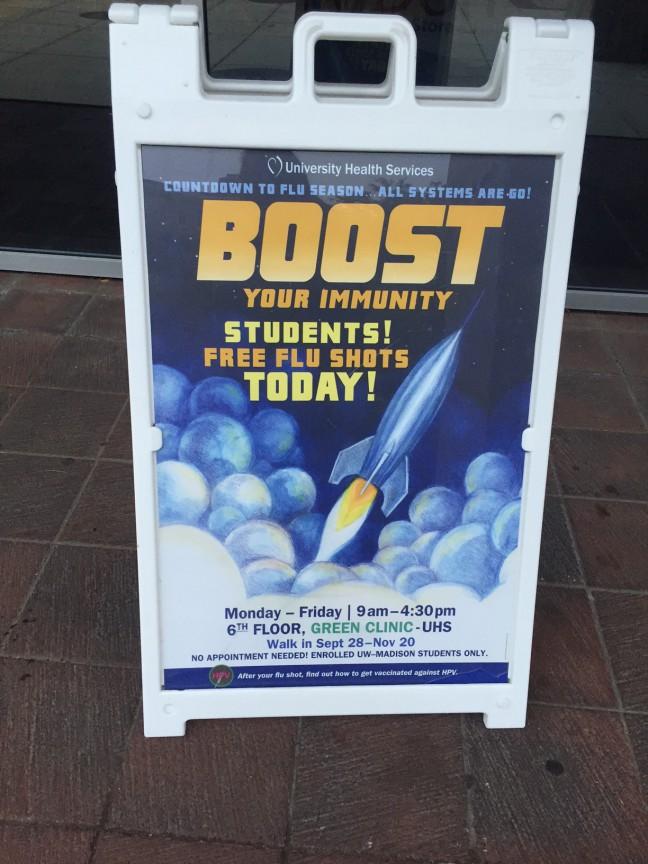It’s that time of year again. October hits, and it seems like everyone in your lecture hall is sneezing, coughing or some combination of both. Staying healthy — and in class — seems like an uphill battle.
One of the best tools you have to fight back is the flu shot — a safe, convenient way to reduce your chances of contracting influenza. But, the National Foundation of Infectious Diseases reports that as few as 8 percent of students actually received a flu shot last year.
So, let’s get a few things straight about the flu vaccine, and why you should get one immediately.
Flu vaccines are completely safe.
The flu vaccine is inactive, and contains an altered form of the virus that cannot get you sick. Some people may experience minor side effects, such as soreness or fever, but these disappear quickly.
Flu Season is coming early this year — and might be more dangerous than ever.
The flu shot takes approximately two weeks to become effective, so don’t delay. U.S. experts have predicted a potentially more dangerous flu season, with pockets of H3N2 flu appearing as early as September.
Last month, the Health and Human Services Secretary urged Americans to get their flu shot as soon as possible, before influenza starts circulating widely. Last season, hospitalization rates for influenza were nearly double those of 2015. This year could be even worse.
UW pharmacy professor works to protect heart disease patients from the flu
They’re free
For all University of Wisconsin students, the flu vaccine is as easy as making an appointment with UHS, or going to a convenient pop-up clinic. In addition, Target, CVS and Walgreens are all running promotions for their flu shot recipients.
Under the Affordable Care Act, all flu shots are required to be covered by insurance — no copays needed.
It’s not just about you
At the end of the day, no one can force you to get a flu shot. Many choose to forgo vaccinating, and deal with the flu in the likely possibility they contract it. Passing on the flu vaccine, however, has serious, life-threatening consequences for many students in the community.
When large proportions of a given community aren’t vaccinated, herd immunity suffers. Herd immunity — also known as community immunity — protects those who are not vaccinated by enclosing them within a community that has lower transmission rates.
Herd immunity protects those who cannot get vaccinated. If you are pregnant, under the age of six months, or immunocompromised, flu shots are out of the question. These individuals rely on the community to lessen their chances of contracting diseases — which makes your role much more important than many realize.
The CDC estimates that anywhere between 12,000 and 56,000 people die from the flu in the U.S. every year. Many of them are eligible to receive a flu shot. But, only about 42 percent of adults in the U.S. were vaccinated last year against influenza.
While the influenza vaccine is never 100 percent effective, receiving it is still crucial. By building good herd immunity, we protect those in our community who cannot be vaccinated, like those undergoing chemotherapy, or who have received an organ transplant.
In the end, flu shots aren’t really about you. It’s about the thousands of preventable deaths, hospitalizations and complications the influenza causes every year. You might be able to handle the flu, but for the elderly and children, it can be a virtual death sentence.
So don’t tough it out. Get your flu shot — soon — and stop being selfish. You might not end up missing class after all.
Julia Brunson ([email protected]) is a sophomore majoring in history.














